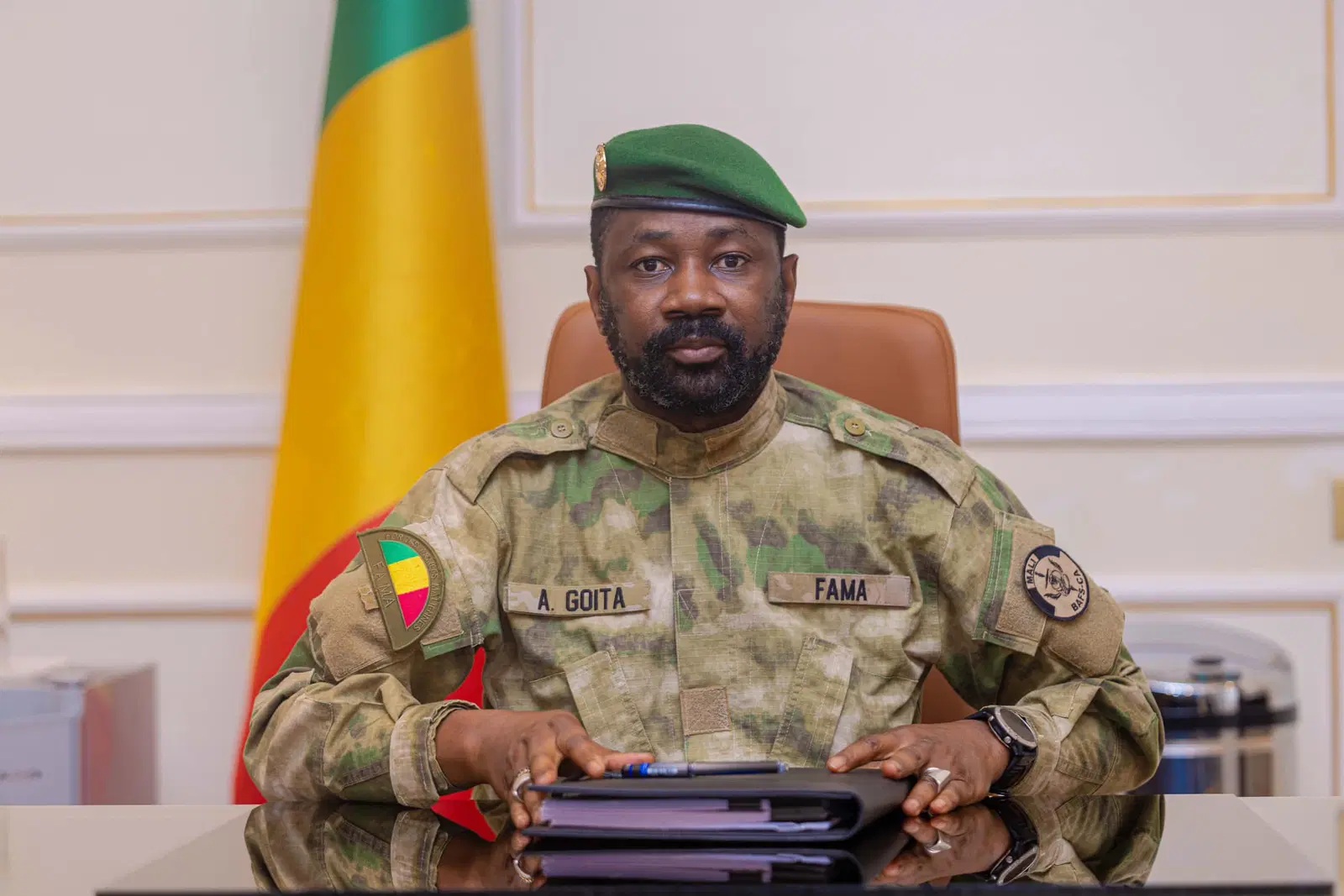In a move that has sparked both concern and controversy, Mali’s transitional parliament has granted military ruler General Assimi Goïta a renewable five-year presidential term, effectively extending his grip on power until at least 2030.
This unprecedented decision comes without any elections, further delaying the return to civilian rule in the troubled West African nation.
General Goïta, 41, has seized power on two separate occasions, first in 2020 and again in 2021.
After toppling then-President Ibrahim Boubacar Keïta amid massive anti-government protests, he initially installed a civilian-led transitional government.
However, dissatisfied with its performance and pressured by regional bloc Ecowas to keep the transition civilian, Goïta staged another coup in May 2021, naming himself transitional president.
At the time, Goïta pledged to hold democratic elections by the following year.
That promise, however, remains unfulfilled.
Instead, the transitional parliament, known as the National Transitional Council, has now approved a sweeping bill solidifying his authority.
The bill, passed unanimously by 131 of the council’s 147 members, allows Goïta to remain in power indefinitely under the premise of stabilizing the country.
It even grants him and other transitional figures the right to run in future elections, should any take place.
Council president Malick Diaw described the move as “a major step forward in the rebuilding of Mali,” claiming that the legislation reflects the will of the people.
But critics argue that the new mandate undermines democratic principles and could open the door to increased authoritarianism.
The bill’s language is particularly troubling to opposition groups and civil society advocates.
It states that the transitional president’s term can be renewed “as many times as necessary,” essentially removing any clear timeline for restoring democratic governance.
With political parties currently banned—an edict issued by the junta in May, many fear that dissenting voices will continue to be silenced and opposition movements further weakened.
Since seizing power, Goïta has shifted Mali’s international alliances, turning away from traditional Western partners like France and instead forging closer ties with Russia.
This geopolitical pivot has mirrored similar moves by military-led regimes in neighboring Burkina Faso and Niger.
The three countries have formed a strategic alliance and recently withdrew from the Economic Community of West African States (Ecowas), which has demanded a return to democratic rule across the region.
Goïta’s government has justified its consolidation of power by citing the need to combat jihadist insurgencies that have plagued Mali for over a decade.
Islamist groups affiliated with al-Qaeda and the Islamic State continue to stage attacks across the country, targeting both civilians and military installations.
Just this week, coordinated assaults were reported on multiple army outposts, a stark reminder that the security crisis persists despite years of military rule.
Ironically, one of the key reasons cited for the 2020 coup was the previous government’s failure to contain this very violence.
Yet, despite Goïta’s promises to restore order and prioritize national security, the situation has only grown more dire.
Human rights groups have also reported increasing repression, including arbitrary arrests and restrictions on media freedom.
The junta’s recent decision to extend its tenure without elections could deepen Mali’s isolation on the global stage.
Already, the country faces economic sanctions and reduced foreign aid, and its democratic backsliding is likely to draw further criticism from international observers.
What once began as a popular movement to challenge government ineffectiveness and corruption has evolved into a prolonged period of military dominance with no clear end in sight.
While Goïta and his allies argue that stability must precede elections, many Malians and international watchdogs worry that stability is being used as a smokescreen for indefinite rule.
As Mali grapples with political uncertainty and growing insecurity, the latest developments mark a critical juncture.
Whether General Goïta’s extended rule will bring peace or further entrench authoritarianism remains to be seen, but for now, the prospects for a swift return to democracy appear increasingly remote.







